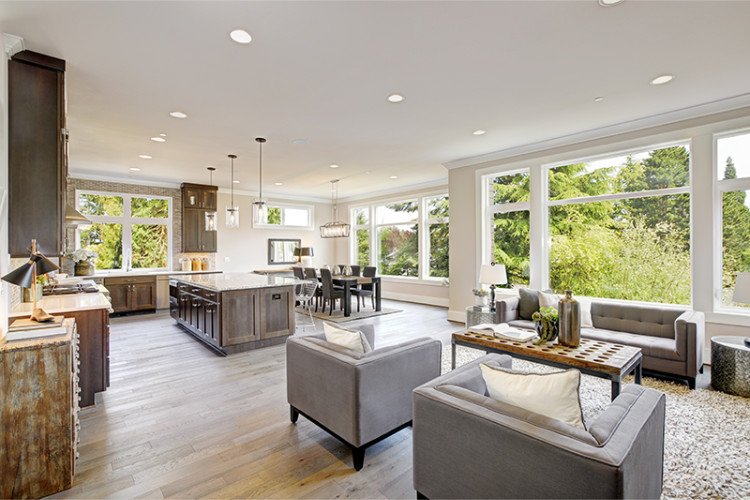Eco-Friendly Home Design
Whether you’re building, buying, or updating a home, these tips will help you make environmentally friendly home design choices.
We all want to save the environment, but sometimes we don’t know exactly how to help. The good news is that making a difference is easier than you might think!
When you’re building or buying a new home or just updating your current one, you can make a big impact by being more intentional in your selections. And you will find that making environmentally friendly choices often offer additional benefits, such as being better for your health and budget.
Keep reading below to help you get inspired by these eco-friendly design trends!
A Smaller Home
Image credit: lovePROPERTY
Tiny homes like the one pictured above are all the rage these days, but you don’t have to go tiny to make a big difference to both the environment and your budget. Carefully consider the space you need, and don’t go over that when building or buying. A smaller home saves energy and makes you more intentional about what you own. Both of these results are easy on the environment and your pocketbook.
Natural Light
Image credit: Feldco
Making the switch to LED lights definitely saves energy, but go a step further by reducing your need for artificial light. For an existing home, you could maximize the use of windows you already have by opening blinds during the day. If you’re building a new home, seek ways to position windows to maximize the amount of sunlight in your home.
Sustainable Materials
Image credit: New Decor Trends
Sustainable materials can be produced without depleting non-renewable resources or disrupting the environment, so opt for them whenever possible.
Here are some choices:
Cork
Bamboo
Reclaimed Wood
Natural Stone
Recycled Glass
Recycled Aluminum
Rattan
Recycled Plastic
Natural Fabrics (Hemp, Wool, Linen, Organic Cotton, Jute, and Silk)
Non-Toxic Finishes
Image credit: Real Simple
Look for paints and varnishes that have reduced levels of volatile organic compounds (VOCs). VOCs evaporate at room temperature and can pollute both indoor and outdoor air. They can cause nausea and even kidney damage in humans during this process, which can take several weeks.
In addition to VOCs, many finishes contain biocides, fungicides, and pigments, which can also harm your health and the environment.
Here are some environmentally friendly choices:
Non-toxic paint
Finishes with “low VOCs”
Low-biocide paints
Milk paint
Water-based paint, stains, and sealants
Latex paint
Low-Flow Plumbing Fixtures
Image credit: HGTV
If you’ve been dying to replace your outdated showerheads, toilets, and faucets, here’s a great excuse! Modern plumbing fixtures have a low-flow feature that saves water. As a result, you will save money over time.
ENERGY STAR Certified Appliances
Image credit: The Spruce
Look for the ENERGY STAR label when you’re replacing your refrigerator, washer, dryer, water heater, light bulbs, air conditioner, or heater.
In fact, the U.S. Department of Energy says that ENERGY STAR appliances can reduce your home appliance energy usage and costs by as much as 10 percent to 50 percent. In addition, they reduce greenhouse gas emissions, water consumption, and our reliance on dwindling fossil fuel resources and foreign oil. Plus, they work better. For example, an ENERGY STAR washer and dryer can wash more clothes in a single load and dry them faster.
Clearly, you can’t go wrong with the environmentally friendly option!
LOCAL VENDORS
Whenever possible, buy from local vendors (like HomeSource Design Center)! Buying locally reduces transportation costs, which is better for the environment. Plus, it helps your local economy by providing jobs to people in your community and tax revenue for your local government.







